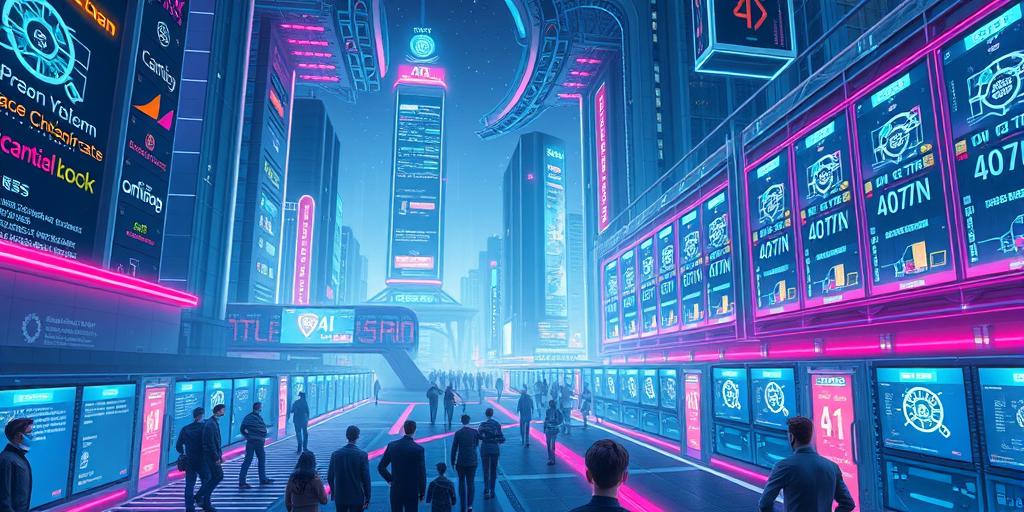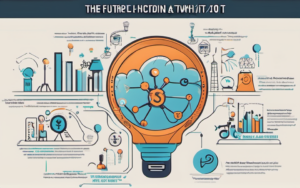The world is rapidly evolving, driven by technological advancements that are changing the way we live, work, and interact with the world around us. At the forefront of this revolution is AI Technology, which is transforming industries and shaping the future of technology. AI, coupled with its powerful subset, machine learning, is poised to revolutionize various aspects of our lives, from healthcare to transportation and beyond.
The Rise of AI and Machine Learning
AI: Transforming Industries
Artificial intelligence (AI) is the ability of computer systems to perform tasks that typically require human intelligence, such as learning, problem-solving, and decision-making. AI systems are trained on vast amounts of data, allowing them to identify patterns, make predictions, and automate complex processes.
AI is already transforming industries like finance, retail, and manufacturing. Financial institutions use AI for fraud detection, while retailers leverage it for personalized recommendations and inventory management. In manufacturing, AI-powered robots are automating tasks, improving efficiency and productivity.
Machine Learning: The Power of Data
Machine learning (ML) is a subset of AI that enables computers to learn from data without explicit programming. ML algorithms are designed to identify patterns and insights from data, allowing them to make predictions or decisions.
ML is driving innovation in a wide range of applications, including image recognition, natural language processing, and predictive analytics. For example, ML algorithms are used in self-driving cars to interpret data from sensors and make driving decisions.
AI and Machine Learning in Future Technologies
Revolutionizing Healthcare
AI and ML are revolutionizing healthcare, with the potential to improve patient outcomes and reduce healthcare costs.
Personalized Medicine
AI algorithms can analyze patient data, such as medical history, genetic information, and lifestyle factors, to create personalized treatment plans. This personalized approach can lead to more effective treatments and fewer side effects.
Disease Diagnosis and Treatment
AI-powered tools can assist doctors in diagnosing diseases earlier and more accurately. ML algorithms can analyze medical images, such as X-rays and MRIs, to identify potential abnormalities, while AI-powered chatbots can provide patients with 24/7 support and answer common medical questions.
Advancing Transportation
AI and ML are playing a crucial role in the development of autonomous vehicles and smart traffic management systems.
Autonomous Vehicles
Self-driving cars use AI and ML to perceive their surroundings, navigate roads, and make driving decisions. These vehicles have the potential to reduce accidents, improve traffic flow, and provide greater accessibility for people with disabilities.
Smart Traffic Management
AI-powered traffic management systems can analyze real-time data from traffic sensors to optimize traffic flow, reduce congestion, and improve public safety.
Enhancing Communication and Entertainment
AI and ML are transforming the way we communicate and experience entertainment.
Natural Language Processing
Natural language processing (NLP) enables computers to understand and interpret human language. NLP is used in chatbots, voice assistants, and machine translation, making it easier for people to interact with technology using natural language.
Virtual and Augmented Reality
Virtual reality (VR) and augmented reality (AR) are immersive technologies that are enhancing entertainment experiences. AI and ML are being used to create more realistic and engaging VR and AR experiences, allowing users to interact with virtual worlds in new and innovative ways.
Challenges and Ethical Considerations
While AI and ML offer immense potential, they also raise important challenges and ethical considerations.
Job Displacement and Economic Impact
The automation of tasks by AI and ML raises concerns about job displacement. It’s important to address these concerns by investing in education and training programs that equip workers for the jobs of the future.
Bias and Fairness in AI Systems
AI systems are trained on data, and if that data is biased, the AI system may perpetuate those biases. It’s crucial to develop AI systems that are fair and unbiased, ensuring that they treat everyone equally.
Data Privacy and Security
AI systems rely on vast amounts of data, raising concerns about data privacy and security. It’s important to implement strong data protection measures to prevent unauthorized access and misuse of personal data.
The Future of AI and Machine Learning
AI and ML are rapidly evolving, with ongoing innovation and development. These technologies are poised to play an increasingly important role in our lives, shaping the future of technology and society.
Continued Innovation and Development
Researchers and developers are continuously working to improve AI and ML algorithms, making them more powerful, efficient, and capable. New breakthroughs are expected in areas such as natural language processing, computer vision, and robotics.
Integration into Everyday Life
AI and ML are becoming increasingly integrated into our daily lives. From our smartphones to our homes, AI-powered devices are making our lives easier, more convenient, and more connected.
The Potential for a More Efficient and Sustainable Future
AI and ML have the potential to solve some of the world’s most pressing challenges, such as climate change, resource scarcity, and poverty. By optimizing processes, improving resource management, and driving innovation, AI and ML can contribute to a more efficient and sustainable future for all.
AI and ML are transforming the world around us, creating new opportunities and addressing challenges. As these technologies continue to evolve, it’s important to embrace their potential while addressing the ethical considerations they raise. By working together, we can harness the power of AI and ML to create a better future for all.




